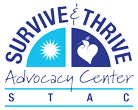Words are powerful, and misinformation is dangerous. That’s why it’s important to know the truth about human trafficking and what it looks like in your own community. Human trafficking situations are complex, and there’s no single description that fits every trafficking victim or survivor. Equipping yourself with knowledge about human trafficking is the first step to ensure you are prepared to respond appropriately if faced with a trafficking situation. Here are seven important human trafficking terms to know in the fight against human trafficking.
Human Trafficking
Human trafficking is the exploitation and control of one person by another for profit, power, or commercial gain or benefit. Human trafficking does NOT require movement or national, state, or local border crossing of any kind. The term “human trafficking” refers to both sex trafficking and labor trafficking. It is a “crime of many crimes” – and one of the fastest growing globally.
Victim
The words “victim” and “survivor” of human trafficking can be used interchangeably. It is preferable to use “victim” to refer to someone currently in a human trafficking situation (see below for the definition of “Survivor”). According to the National Human Trafficking Training and Technical Assistance Center, the term “victim” is also used when referencing rights or resources that a victim is legally mandated to receive.
Survivor
Recovery is a long process, and the trauma of human trafficking can last a lifetime. The term survivor is used to refer to someone who was once in a human trafficking situation but is no longer being trafficked. Popular media, TV, or movies often depict trafficking victims or survivors only as being helpless and weak. However, these same survivors show great strength and the ability to survive in extremely dangerous and traumatic situations.
Coercion
Human trafficking victims are often put in a “prison without walls” and cannot leave their situation because of threats, violence, coercion, lies and deceit, and abuses of power. According to § 787.06, Fla. Stat. (2022), coercion may include: threats or physical force; restraining or isolating the victim; establishing a debt when labor or services are pledged in security for the debt; stealing or destroying passports or other identification documents; threatening financial or other harm; enticing or luring with fraud; and providing a controlled substance to exploit.
Mandated Reporter
Per the NHTTAC, a mandated reporter is “a person who, because of his or her profession, is legally required to report any suspicion of child abuse or neglect, intimate partner violence, and/or human trafficking to the relevant authorities per federal and state requirements.”
Smuggling
Smuggling and trafficking are not interchangeable terms. According to the NHTTAC, smuggling is defined as illegal transportation of consenting individuals across a national border. Specifically, smuggling is a crime against a country, involves a mutual transaction and ends upon arrival at a desired destination. It is important to note, however, that individuals being smuggled across a border are vulnerable to human trafficking.
Force
According to NHTTAC, force may involve the use of physical restraint or serious physical harm; physical violence, including rape, beatings, and physical confinement, and is often used to control victims. To be considered labor or sex trafficking in a legal context, a situation must include use of force, fraud, or coercion unless the victim is under the age of 18. Federal and Florida laws do not require a show of force, fraud, or coercion for sex trafficking cases involving minors, but you do need to show force, fraud, or coercion for labor trafficking of minors under federal law.
Equip Yourself with Knowledge
Education is the No. 1 tool we have for ending human trafficking, which is why it’s important to understand these human trafficking terms and what you can do to spread awareness. Survive and Thrive Advocacy Center supports ALL sex and labor trafficking survivors regardless of age, gender, immigration status, or faith, as well as those who are risk. STAC’s website also has a rich array of information such as topical webinars ranging from CEU-approved training for healthcare professionals to how to protect children and youth from online sex trafficking. Click here to learn more.




